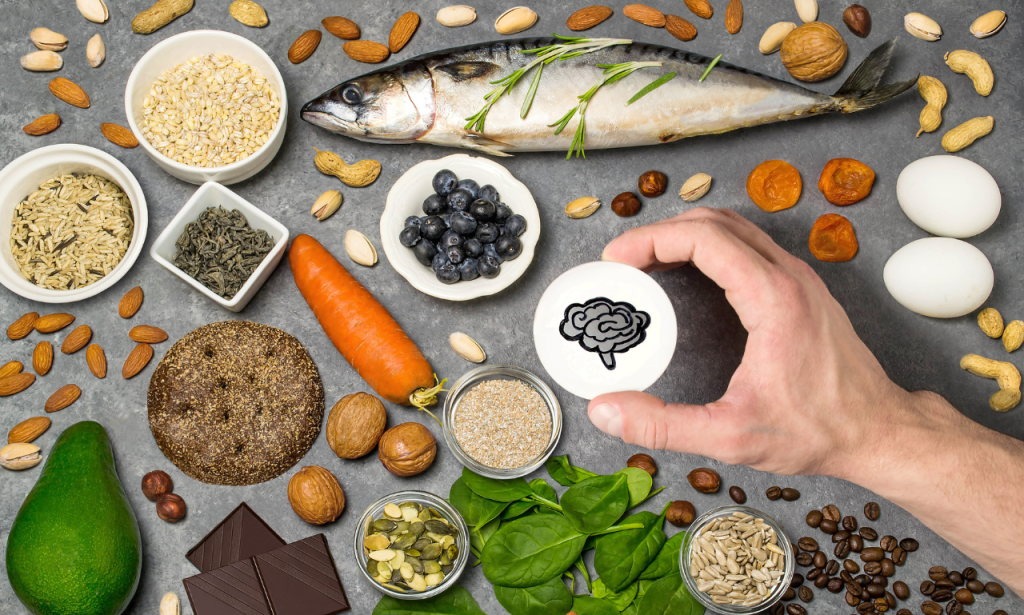If you have been following the latest trends in health and nutrition, then chances are you’ve already have heard of functional foods. But then again, what on earth are functional foods, and why have they started gaining so much attention? In this article, we will discuss their definition, and advantages, possible disadvantages, and the role functional foods can play in a person’s nutrition regimen.

What Are Functional Foods?
Functional foods are foods that go above and beyond basic nutrition by providing health benefits. They may be fortified, enriched, or natural items that enhance health in the areas of disease prevention, immunological functions, or physical and psychological health. These include enriched cereals, probiotics, omega-3 egg yolks, and even common foods such as blueberries and garlic which are rich in bioactive molecules.
Functional foods can be said to bring a lot easier than the capabilities of a diet or nutrition as it has a much more focused approach. They focus toward certain vitamins, natural antioxidants, or fiber, to fill in the gaps between diet consumption and health-oriented consumption.
Categories of Functional Foods
Broadly speaking, functional foods can be classified into two main categories:
Naturally Occurring Functional Foods
These are natural, unprocessed foods like fruits, vegetables, nuts and fish. Examples include:
Blueberries:
Contain antioxidants like anthocyanins which are anti inflammatory and help enhance cognition.
Salmon:
A natural source for omega-3 fatty acids which are essential for heart and brain health.
Garlic:
Has allicin, which is known for its antimicrobial and cholesterol lowering functions.

Modified or Fortified Functional Foods
These foods have some added nutrients that make them more beneficial to one’s health. Examples include:
Fortified Cereals:
Have been suffused with iron and folic acid to avoid deficiencies.
Probiotic Yogurt:
Contains active cultures to promote gut health and aid digestion.
Calcium-enriched Plant Milk:
A substitute for dairy which has got great benefits for bones.
The Advantages of Functional Foods
Extended Health Effects
Functional foods have a health goal in mind. Omega-3 eggs are cardiovascular friendly while probiotics are beneficial in maintaining gut flora and improving digestion and immunity.
Control of Disease
Functional food may be consumed in addition seeking to bring down the risk of chronic disease. For example, oats have beta-glucan, a soluble fiber that is associated with lower blood cholesterol levels and heart disease risk.
Ideal for the Modern Daily Life:
With today’s hectic schedules, functional foods make it easy for people to get the necessary nutrients without thinking about meals or taking supplements. It is easy to see why fortified breakfast cereals are an ideal solution. They are a nutritious way to start the day, without taking necessarily a lot of time preparing the meals.
Better Life Satisfaction
They help solve specific health issues such as poor digestion, low energy levels, lack of immunity, which enables people to live healthier lives in general.
Accommodating Individuals with Unique Tastes:
Different functional foods excluding gluten, dairy and other allergens or products with no fat are available to enhance functional foods consumption
Functional Foods’ Drawbacks:
Cost Issues:
Compared to their conventional counterparts, functional meals are frequently more costly. Omega-3 enhanced eggs and probiotic yogurt, for instance, are expensive, which may put off buyers on a tight budget.
Exaggerated Advertising Claims
The health claims made for some functional foods are either overstated or unsupported. A balanced diet should be supplemented, not replaced, by these items, although terms like “superfood” can mislead customers into thinking they are magical cures.
Possibility of Overindulgence
Nutrient overdoses are an unforeseen result of enhanced foods. For instance, if taken in excess, fortified foods heavy in iron or vitamin A can be harmful.
Risks of Allergies and Sensitivity
Some people may be allergic to or sensitive to substances found in modified functional foods, such as additional dairy, soy, or gluten.
Insufficient Knowledge
Even though functional foods have many advantages, many consumers don’t know how to include them in their diets. The potential benefits of certain foods might not be realized if the right information is not available.

The Best Way to Include Functional Foods in Your Diet:
Get Started Small
Every week, add one or two functional foods to your diet. For example, replace ordinary bread with fiber-fortified whole-grain bread or add a handful of nuts to your snack.
Put Variety First
It can be restrictive to rely solely on one functional food for health benefits. A well-rounded nutrient intake is ensured by a balanced strategy that includes fruits, vegetables, fortified meals, and probiotics.
Examine the labels. With caution
Examine packaged functional foods for artificial ingredients, added sugars, and sodium. Whenever feasible, use minimally processed choices.
Speak with a Dietitian
A medical expert can help you select functional meals that fit your dietary requirements and health objectives.
Integrate Healthful Habits with Functional Foods
Although functional meals have many advantages, they are most effective when combined with a healthy lifestyle that includes regular exercise, drinking enough water, and getting enough sleep.
Functional Foods’ Future
As more people look for preventative health measures, there is an increasing need for functional foods. Future developments include personalized nutrition, which involves customizing meals based on a person’s genetic composition. Furthermore, in line with international environmental health goals, sustainable functional meals like plant-based protein and omega-3s generated from algae are becoming more popular.
Conclusion:
Do Functional Foods Live Up to the Hype?
Functional foods have a huge potential to improve overall health and prevent disease when incorporated into a balanced diet. Because of their ability to meet specific health needs, they are a beneficial addition to modern nutrition. However, it’s important to approach these foods with understanding, realistic expectations, and a mindset that emphasizes moderation.
A diversified and well-balanced diet cannot be replaced by functional foods, even though they can enhance wellbeing. They are only one part of the larger scheme of achieving optimal health. By making informed choices, you can benefit from functional foods while maintaining a sustainable, healthy lifestyle.



